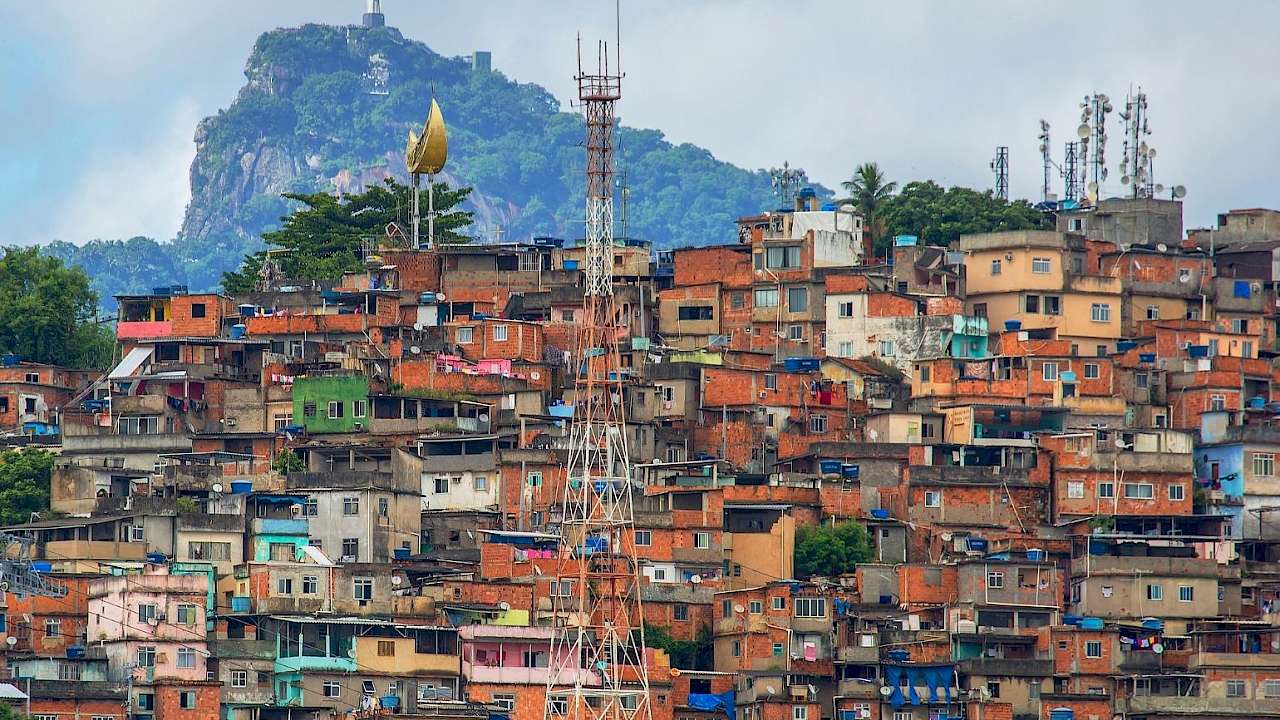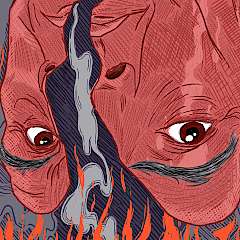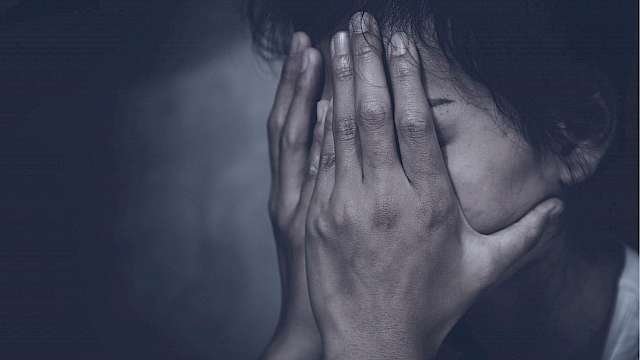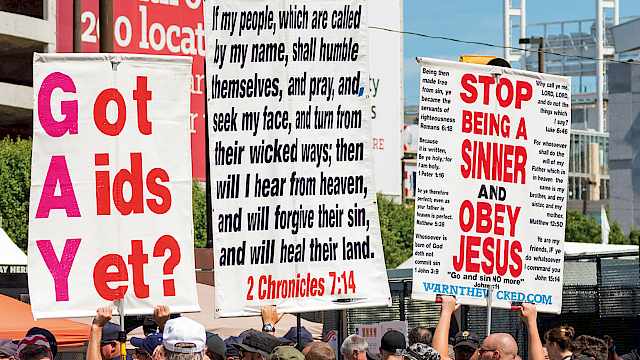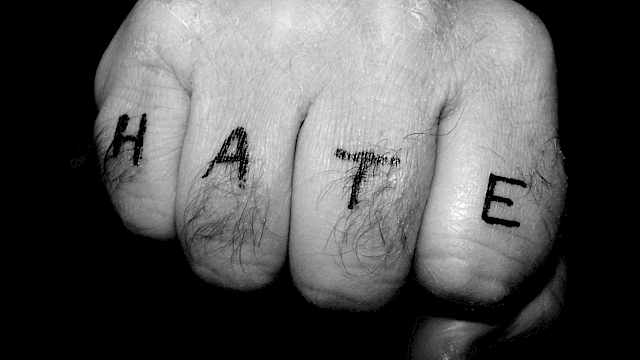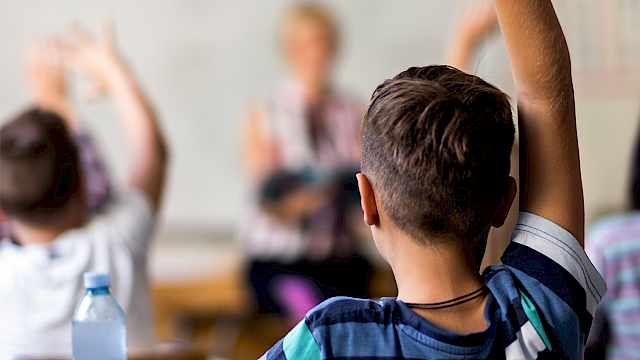Our research focuses on residents of favela communities in Rio de Janeiro where armed violence in certain communities reaches levels comparable to war/conflict-affected contexts. The majority of favela residents are black and have historically suffered from inequality, discrimination, and marginalisation. This impacts all areas of their life; people from favela communities are more likely to live in poverty, have reduced access to quality education and healthcare, and face stigma daily. The ‘otherness’ of the favela has helped justify rights violations and lethal violence from state forces for decades. The institutionalised militarisation of policing in Brazil, including police training from the USA, has also resulted in the use of lethal violence in favelas being normalised and encouraged in some police units.
State violence overwhelmingly targets favela communities and its residents, and in parts of Brazil is endemic: in six states, every four hours, a black person dies as a result of police action.
This entrenches a conflict mentality, generates fear and resentment, and perpetuates acts of extreme violence from police forces and armed gangs.
In Rio de Janeiro, apart from a short-lived ‘pacification programme’ in the years prior to hosting the World Cup, public security policy has ascribed largely to a mano dura approach. According to Human Rights Watch, in 2008, police in Rio state killed one person for every 23 arrested (the comparative figure in the same year for the USA was 1 in 37,000). More recently, in 2019, over 1,800 people died in police confrontations, representing more than 30% of violent deaths in the state that year. Over 80% of victims are young, black men.
A large part of the population supports violent police operations: in June 2022, Rio’s governor, Claudio Castro, remarked, “if I based [my decisions] on public surveys, I would order an operation every week”.
Deaths are the most serious outcome of this violence, but shootouts, particularly during hours-long police operations using caveirão (‘big skull’) tanks, have a range of negative impacts on the community, from disruption of vital local services to widespread mental health issues. For example, in 2019, in the Complexo da Maré favelas schools shut for 25 days (12% of the school year), and 15,000 health centre appointments were cancelled as a result of shootouts. A 2020 study showed the prevalence of exposure to violence in Maré and the impact this has:
- Over 44% of residents had been in the middle of a shootout in just the last six months
- 31% reported that the violence affected their mental health (rising to 44% for those exposed to shootouts)
- 62% said they always or often feared being shot
- A number of studies have shown that what favela residents fear most is the violence from police operations rather than drug factions.
Police violence & mental health
Studies in Brazil evidence a causal link between police violence and pervasive mental health difficulties for children in the favelas. Children exposed to ongoing violence, including multiple deaths, psychological violence, witnessing atrocities, and sexual exploitation, experience high levels of post-traumatic stress, dissociation, depression, anxiety and substance use and are at a higher risk of engaging in armed groups and domestic violence. The interaction of violent police oppression and poverty dramatically exacerbates the risks to children’s well-being.
The World Health Organization estimates that over a quarter of children in the favelas present serious psychiatric conditions, rising to almost all children within the Brazilian criminal justice system. The difficulties are long-term into adulthood and result in a shortened life for many.
Teaching Recovery Techniques (TRT)
To address the pervasive levels of post-traumatic stress and depression for children in the favelas and to increase their capacity for post-traumatic growth, Teaching Recovery Techniques (TRT), an empirical group-based trauma-focused psychosocial programme, was delivered to children in the Complexo da Maré, a group of favelas in Rio. TRT involves five two-hour sessions that address the three axes of PTSD (intrusion, hyperarousal, and avoidance). Children receive psychoeducation normalising their response to adversity, and are taught a range of cognitive-behavioural techniques to manage flashbacks, calm their body, and take small steps (systematic desensitisation) to go into situations previously triggering fear.
A randomised control trial evaluated the outcomes for children. Thirty children aged 8–14 years were randomly assigned to TRT or a martial arts program. All but one child had clinical levels of PTSD. Following only five 90-minute weekly sessions, children who received TRT showed significant reductions in post-traumatic stress (down to 14%) and depression as well as gains in post-traumatic growth. To increase TRT effectiveness further the importance of understanding the impact of ongoing police violence in limiting mental health gains was emphasised.
Despite the complexity and enduring nature of extreme police violence and armed gang violence in Complexo da Maré, reductions in PTSD were similar to other TRT studies. These studies focused on both single event traumas, such as floods and earthquakes, as well as the more complex and cumulative traumas of war and violent military occupation.
Implementing group-based trauma-specific interventions can reduce the effects of extreme police violence, significantly reducing the risks for youth entrapped in drug-related violence.
Takeaways for policymakers
- Prolonged exposure to extreme violence, whether police or gang members, results in youth inured to violence. In the short-term, youth experience PTSD, depression, anxiety, dissociation, substance use, and the harming of self and others. If left unaddressed, youth can develop long-term mental health difficulties, including personality disorders, paranoia, criminality, triggered excessive violence, substance dependence, suicidal ideation, and suicide.
- Studies in Brazil and Palestine indicate that implementing social welfare programmes increase educational and employment opportunities.
- Our work shows that implementing group-based trauma-specific interventions can reduce the effects of extreme police violence, significantly reducing the risks for youth entrapped in drug-related violence.
- Studies in Brazil and Palestine indicate that these trauma based interventions are most effective when supported by social welfare programmes and increased educational and employment opportunities for youth.
Dr Ian Barron is the Director of the Center for International Education, and Professor in the Department of Student Development, University of Massachusetts, Amherst.
Patrick Ashcroft is the Senior Global Partnerships Manager at Luta Pela Paz (Fight for Peace), Mare Rio de Janiero, Brazil.
Gerald Fonville is a PhD student in Student Development and affiliated to the Center for International Education, University of Massachusetts, Amherst, and lead consultant for the Fonville Group Inc.
Read more
Alves, J. A. (2018). The anti-black city: Police terror and black urban life in Brazil. University of Minnesota Press. https://tinyurl.com/5dfa3vvj
Amnesty International (2015). You Killed My Son: Homicides by military police in the city of Rio de Janeiro. Anistia Internacional Brasil. https://tinyurl.com/aa34fm6s
Barron, I., Freitas, F., & Bosch, C. A. (2021). Pilot randomized control trial: efficacy of a group-based psychosocial program for youth with PTSD in the Brazilian favelas. Journal of Child & Adolescent Trauma, 14(3), 335-345. https://tinyurl.com/yp53znd6
Barron, I. G., & Abdallah, G. (2015). Intergenerational trauma in the occupied Palestinian territories: Effect on children and promotion of healing. Journal of Child & Adolescent Trauma, 8(2), 103-110. https://tinyurl.com/y4kukv2n
Barron, I., Abdallah, G., & Heltne, U. (2016). Randomized control trial of teaching recovery techniques in rural occupied Palestine: effect on adolescent dissociation. Journal of Aggression, Maltreatment & Trauma, 25(9), 955-973. https://tinyurl.com/ys86pafz
Barron, I. G., Abdallah, G., & Smith, P. (2013). Randomized control trial of a CBT trauma recovery program in Palestinian schools. Journal of Loss and Trauma, 18(4), 306-321. https://tinyurl.com/5xzsz8du
Barron, I., Freitas, F., & Bosch, C. A. (2021). Pilot randomized control trial: efficacy of a group-based psychosocial program for youth with PTSD in the Brazilian favelas. Journal of Child & Adolescent Trauma, 14(3), 335-345. https://tinyurl.com/yp53znd6
Cavalcanti, R. P., & Garmany, J. (2020). The politics of crime and militarised policing in Brazil. International Journal for Crime, Justice and Social Democracy, 9(2), 102-118. https://tinyurl.com/549jtc8c
Chen, Y., Shen, W. W., Gao, K., Lam, C. S., Chang, W. C., & Deng, H. (2014). Effectiveness RCT of a CBT intervention for youths who lost parents in the Sichuan, China, earthquake. Psychiatric Services, 65(2), 259-262. https://tinyurl.com/bdfbyjxm
Cooper, H. L., & Fullilove, M. (2016). Excessive police violence as a public health issue. Journal of Urban Health, 93(1), 1-7. https://tinyurl.com/2fwy3yje
Dildar, S., & Kausar, R. (2019). Efficacy of Teaching Recovery Techniques (TRT) on Psychological Functioning of Flood Affected Girls in Pakistan. International Journal of Research in Informative Science Application & Techniques (IJRISAT), 3(3), 48-57. https://tinyurl.com/5t33j93j
Dowdney, L. (2003). Children of the Drug Trade: A Case Study of Children in Organised Armed Violence in Rio de Janeiro. 7 Letras. https://tinyurl.com/zjehw5jz
Forum Brasileiro de Segurança Pública (2021) Anuário Brasileiro de Segurança Pública. https://tinyurl.com/54n5emmz
Garmany, J. (2014). Space for the state? Police, violence, and urban poverty in Brazil. Annals of the Association of American Geographers, 104(6), 1239-1255. https://tinyurl.com/yxaprpkz
Magaloni, B., Franco, E., & Melo, V. (2015). Killing in the slums: an impact evaluation of police reform in Rio de Janeiro. Center on Democracy, Development and the Rule of Law (CDDRL). Stanford University. https://tinyurl.com/yw2cwxws
Mateus, M. D., Mari, J. J., Delgado, P. G., Almeida-Filho, N., Barrett, T., Gerolin, J., ... & Saxena, S. (2008). The mental health system in Brazil: policies and future challenges. International journal of mental health systems, 2(1), 1-8. https://tinyurl.com/y3svu9sa
Moon, K. (2009). Police Violence in Brazil. Human Rights & Human Welfare, 116-131. https://tinyurl.com/4u3mjx9p
Murray, J., de Castro Cerqueira, D. R., & Kahn, T. (2013). Crime and violence in Brazil: systematic review of time trends, prevalence rates and risk factors. Aggression and violent behavior, 18(5), 471-483. https://tinyurl.com/4psnb9fa
Redes da Maré (2021). People's Palace Projects, Queen Mary University of London, Departments of Social Work and Psychiatry from UFRJ, and NECCULT. Construindo Pontes. https://tinyurl.com/3jpyu2up
Ryngelblum, M., & Peres, M. F. T. (2021). Social segregation and lethal police violence in the city of São Paulo, Brazil (2014-2015). Ciência & Saúde Coletiva, 26, 4275-4286. https://tinyurl.com/ypfrkymw
van der Kolk, B. A., Pynoos, R. S., Cicchetti, D., Cloitre, M., D’Andrea, W., Ford, J. D., & Teicher, M. (2009). Proposal to include a developmental trauma disorder diagnosis for children and adolescents in DSM-V. Unpublished manuscript. Verfügbar unter: https://tinyurl.com/42b92fwm
Vargas, J. H. C. (2006) ‘When a Favela Dared to Become a Gated Condominium: The Politics of Race and Urban Space in Rio de Janeiro’, Latin American Perspectives, 33(4), pp. 49–81. https://tinyurl.com/5n6bwt6e
Wacquant, L. (2003) ‘Toward a Dictatorship Over the Poor?: Notes on the Penalization of Poverty in Brazil’, Punishment & Society, 5(2), pp. 197–205. https://tinyurl.com/mtac3n49
Copyright Information
Galina_savina | stock.adobe.com
